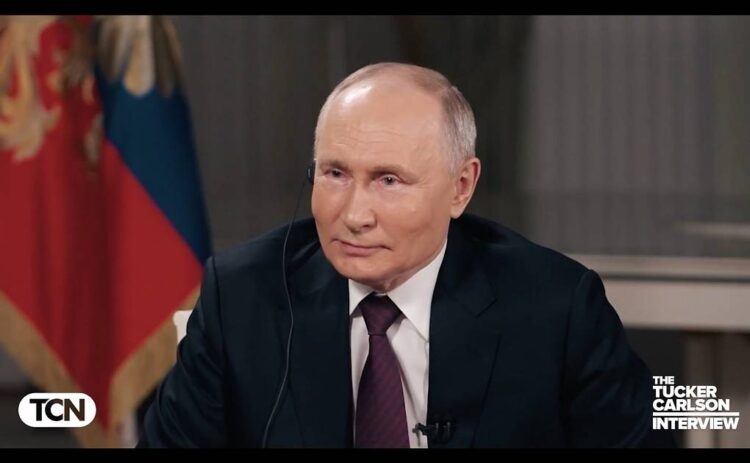Russian President Vladimir Putin, in an interview with former Fox anchor Tucker Carlson, asserted that the ongoing conflict with Ukraine could swiftly conclude if Western nations ceased supplying weapons to Kyiv. Putin emphasized that his country’s full-scale invasion could come to a halt within a matter of weeks if external support for Ukraine’s defense ceased.
Putin elaborated on the concept of de-Nazification, stating that it involves eradicating neo-Nazi movements and individuals who support such ideologies. He emphasized the necessity of eliminating those who perpetuate and endorse these beliefs.
Regarding his communication with U.S. President Joe Biden, Putin indicated a lack of recent dialogue, stating he couldn’t recall the last time they spoke. He contrasted this with his past relationship with former President Donald Trump, suggesting a more favorable rapport with the former leader.
When asked about Elon Musk, Putin remarked on the entrepreneur’s ambitious endeavors, including rumors of brain chip implants, expressing a belief that Musk will pursue his projects regardless of obstacles.
A curious exchange arose when Carlson questioned Putin about the attacks on the Nord Stream gas pipelines in the Baltic Sea. Putin jokingly suggested Carlson’s involvement, to which Carlson denied any participation, leading to a lighthearted exchange about alibis and accusations, albeit without presenting evidence.
Kremlin spokesperson Dmitry Peskov acknowledged Carlson’s selection for the interview due to his favorable stance on Moscow’s position regarding the conflict. Peskov characterized Carlson’s perspective as pro-American and distinct from traditional Anglo-Saxon media.
In response, the White House downplayed the significance of the interview, asserting that it would not significantly impact public discourse in the United States. The administration emphasized its commitment to supporting Ukraine and its allies while continuing diplomatic efforts to address the conflict.
Overall, Putin’s interview with Tucker Carlson highlighted his views on the Ukraine conflict, criticism of Western aid to Kyiv, and reflections on international relations, sparking varied reactions and interpretations both domestically and abroad.

















Comments